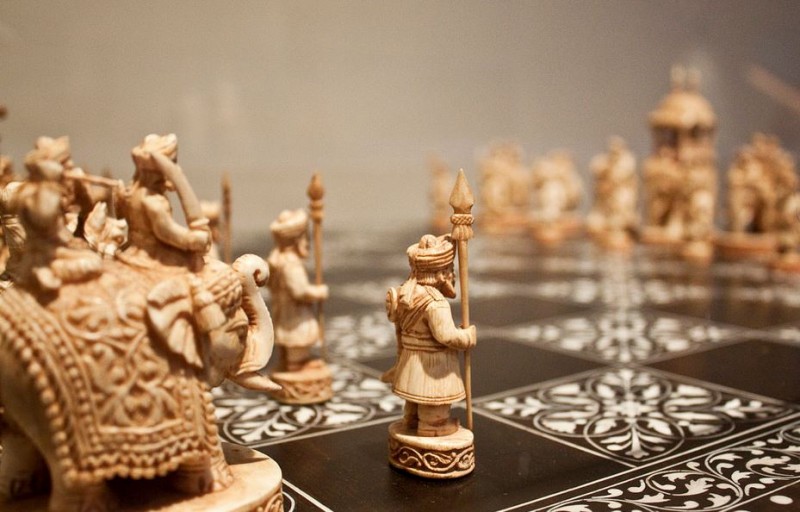
Chess, often hailed as the game of intellect and strategy, holds a significant place in the realm of human history and entertainment. With its origins traced back to ancient India, chess has evolved into a worldwide phenomenon, captivating millions with its intricate moves and tactical battles. Let us explore the fascinating journey of chess, from its humble beginnings in India to its widespread popularity across the globe.
Origins in India: Chess, known as "Chaturanga" in ancient India, is widely believed to be the oldest game in the world with a documented history dating back over 1,500 years. The game was an integral part of Indian culture and society, enjoyed by kings, nobles, and scholars alike. Chaturanga was initially played on an 8x8 checkered board, with four divisions representing the four branches of the Indian military.
Spread and Evolution: As India's influence expanded through trade and conquest, so did the popularity of chess. It spread to Persia (modern-day Iran) around the 6th century, where it was known as "Shatranj." From there, it made its way to the Arab world and eventually reached Europe during the Moorish occupation of Spain. The game gradually evolved, adapting to different cultures and regions, with the rules and pieces undergoing modifications over time.
The Modern Chess Game: The current version of chess that we know today, with its standardized rules and piece movements, emerged during the 15th century in Southern Europe. The evolution of the game was greatly influenced by the contributions of notable chess players and theorists from various countries. Among them, the significant advancements made by Italian and Spanish players laid the foundation for the modern chess game that is played worldwide.
Chess and Strategy: One of the reasons behind chess's enduring appeal is its emphasis on strategy, planning, and decision-making. The game demands critical thinking, foresight, and mental agility from its players. Every move carries consequences, and players must anticipate and respond to their opponent's moves, making it an engrossing battle of wits and intellect.
International Recognition: Chess gained international recognition and became a global phenomenon during the 19th and 20th centuries. The establishment of official chess organizations, such as FIDE (Fédération Internationale des Échecs), helped standardize rules and regulate tournaments at a professional level. Today, chess is played at all levels, from casual enthusiasts to professional players competing in prestigious international events.
Chess as a Symbol of India's Cultural Legacy: As the birthplace of chess, India takes great pride in its ancient invention. The game remains deeply intertwined with Indian culture, showcasing its rich heritage and intellectual prowess. In recent years, Indian chess players have achieved significant success on the international stage, further cementing the country's reputation as a powerhouse in the chess world.
Conclusion: Chess, the oldest game in the world, holds a special place in human history and continues to captivate and challenge people across the globe. Its origins in ancient India reflect the country's profound contributions to the world of intellectual pursuits. As we navigate the complexities of this timeless game, let us appreciate the brilliance of the Indian minds that gave birth to this remarkable pastime, fostering endless hours of mental stimulation, strategic thinking, and pure enjoyment for millions of players worldwide.
NASCAR to jump a day ahead as Rain Kicks On
Unveiling the Top Sports in the World: A Comprehensive Review for Sports Enthusiasts